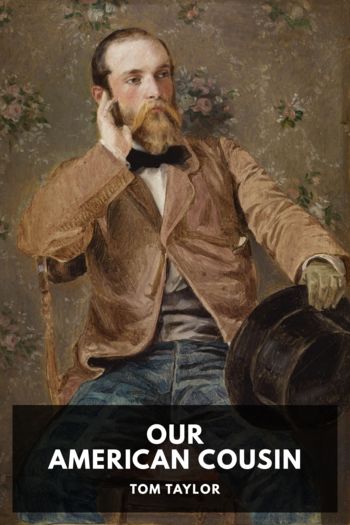Struggles and Triumphs, P. T. Barnum [good books to read in english .txt] 📗

- Author: P. T. Barnum
Book online «Struggles and Triumphs, P. T. Barnum [good books to read in english .txt] 📗». Author P. T. Barnum
On their arrival at the Museum, therefore, I took them upon the stage and personally introduced them to the public. The Indians liked this attention from me, as they had been informed that I was the proprietor of the great establishment in which they were invited and honored guests. My patrons were of course pleased to see these old chiefs, as they knew they were the “real thing,” and several of them were known to the public, either as being friendly or cruel to the whites. After one or two appearances upon the stage, I took them in carriages and visited the Mayor of New York in the Governor’s room at the City Hall. Here the Mayor made them a speech of welcome, which being interpreted to the savages was responded to by a speech from one of the chiefs, in which he thanked the great “Father” of the city for his pleasant words, and for his kindness in pointing out the portraits of his predecessors hanging on the walls of the Governor’s room.
On another occasion, I took them by special invitation to visit one of the large public schools up town. The teachers were pleased to see them, and arranged an exhibition of special exercises by the scholars, which they thought would be most likely to gratify their barbaric visitors. At the close of these exercises, one old chief arose, and simply said, “This is all new to us. We are mere unlearned sons of the forest, and cannot understand what we have seen and heard.”
On other occasions, I took them to ride in Central Park, and through different portions of the city. At every street corner which we passed, they would express their astonishment to each other, at seeing the long rows of houses which extended both ways on either side of each cross-street. Of course, between each of these outside visits I would return with them to the Museum, and secure two or three appearances upon the stage to receive the people who had there congregated “to do them honor.”
As they regarded me as their host, they did not hesitate to trespass upon my hospitality. Whenever their eyes rested upon a glittering shell among my specimens of conchology, especially if it had several brilliant colors, one would take off his coat, another his shirt, and insist that I should exchange my shell for their garment. When I declined the exchange, but on the contrary presented them with the coveted article, I soon found I had established a dangerous precedent. Immediately, they all commenced to beg for everything in my vast collection, which they happened to take a liking to. This cost me many valuable specimens, and often “put me to my trumps” for an excuse to avoid giving them things which I could not part with.
The chief of one of the tribes one day discovered an ancient shirt of chain-mail which hung in one of my cases of antique armor. He was delighted with it, and declared he must have it. I tried all sorts of excuses to prevent his getting it, for it had cost me a hundred dollars and was a great curiosity. But the old man’s eyes glistened, and he would not take “no” for an answer. “The Utes have killed my little child,” he told me through the interpreter; and now he must have this steel shirt to protect himself; and when he returned to the Rocky Mountains he would have his revenge. I remained inexorable until he finally brought me a new buckskin Indian suit, which he insisted upon exchanging. I felt compelled to accept his proposal; and never did I see a man more delighted than he seemed to be when he took the mailed shirt into his hands. He fairly jumped up and down with joy. He ran to his lodging room, and soon appeared again with the coveted armor upon his body, and marched down one of the main halls of the Museum, with folded arms, and head erect, occasionally patting his breast with his right hand, as much as to say, “now, Mr. Ute, look sharp, for I will soon be on the war path!”
Among these Indians were War Bonnet, Lean Bear, and Hand-in-the-water, chiefs of the Cheyennes; Yellow Buffalo, of the Kiowas; Yellow Bear, of the same tribe; Jacob, of the Caddos; and White Bull, of the Apaches. The little wiry chief known as Yellow Bear had killed many whites as they had travelled through the “far West.” He was a sly, treacherous, bloodthirsty savage, who would think no more of scalping a family of women and children, than a butcher would of wringing the neck of a chicken. But now he was on a mission to the “Great Father” at Washington, seeking for presents and favors for his tribe, and he pretended to be exceedingly meek and humble, and continually urged the interpreter to announce him as a “great friend to the white man.” He would fawn about me, and although not speaking or understanding a word of our language, would try to convince me that he loved me dearly.
In exhibiting these Indian warriors





Comments (0)